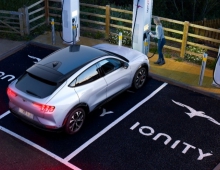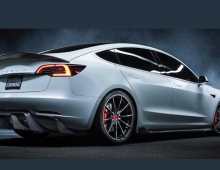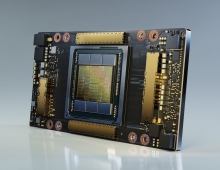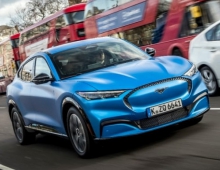
Volkswagen to Invest 44 Billion Euros on e-mobility
Volkswagen wants to become the world’s leading provider of sustainable mobility. To implement this goal resolutely, the Group will be investing almost 44 billion euros over the coming five years on future fields.
The figure will be invested in e-mobility, autonomous driving, new mobility services and the digitalization of vehicles and plants, the supervisory board of Volkswagen AG decided on Friday.
CEO Herbert Diess noted that Volkswagen will orient itself rigorously toward clean mobility. "And we’re also expanding our production sites for our e-offensive."
Volkswagen has decided to convert its existing plants in Emden and Hanover "e-locations". Together with Zwickau, they will become Europe’s largest network for the production of e-vehicles.
In addition, Volkswagen’s current range of six battery-driven electric models will be expanded by 2025 to encompass more than 60 models, and the share of pure e-cars in the model portfolio will then amount to around one-third.
As early as 2020, Volkswagen will launch the first model based on the new modular electric toolkit (MEB). That vehicle, the ID., will be the start of a new era in e-mobility. VW said that the e-car will be available for the price of today’s Golf Diesel, which will help Volkswagen enable mass-produced e-mobility.
Volkswagen is also making changes in order to achieve the efficiency and increase the company's productivity by 30 percent by 2025. The company will rely on multi-brand plants much more strongly than before. For example, the Volkswagen Passat will not be built in Emden anymore, since the plant there will become a pure e-location. Instead, it will move to our Czech plant in Kvasiny and be produced there together with the Skoda Superb, since they share the same platform.
Partnerships are another significant lever for Volkswagen in shaping the future. The company said that the discussions with Ford about an industrial cooperation "are making good progress," since the two companies "complement each other very well in terms of both products and regions." The joint development and manufacture of a range of light commercial vehicles is at the core of the envisaged cooperation. Ford and Volkswagen will nevertheless remain competitors, as the proposed cooperation does in no way concern commercial, marketing or pricing strategies.
China push
Volkswagen Group China also presented today at its Media Workshop an all-encompassing plan for e-mobility, advanced mobility solutions, autonomous driving, and a raft of exciting new products. On the eve of Guangzhou Auto Show the Group demonstrated to nearly 300 media and business partners how it is shaping the new era of mobility.
"In the next year alone, we, together with our partners, plan to invest more than 4 billion euros in China, covering e-mobility, connectivity, mobility services, R&D capacity, efficient production processes and new products. Through this continued strong investment we will transform to meet the needs of our customers with the products they demand. Together with our joint ventures, FAW-Volkswagen, SAIC VOLKSWAGEN and JAC Volkswagen, as well as our many new partners across the broad spectrum of technologies and mobility services, we want to deliver People’s Mobility,” said Prof. Dr. Jochem Heizmann, Member of the Board of Management of Volkswagen Aktiengesellschaft as well as President and CEO of Volkswagen Group China.
During the next two years, the Group aims to offer the largest NEV portfolio in China, with its brands introducing more than 30 new models, 50 percent of them locally produced. It expects to deliver around 400,000 NEVs in China in 2020, accelerating to 1.5 million in 2025. Also in 2020, the first pure e-cars from the company’s NEV production platform, the Modular Electrification Toolkit, or MEB, will roll off production lines at FAW-Volkswagen in Foshan and SAIC VOLKSWAGEN in Anting. On the infrastructure side, Volkswagen Group and its partners are exploring the option to build up a public fast-charging network with high-power technology in China from 2019
In the field of autonomous driving, Audi now holds two test drive licenses for Level 4 highly automated driving in Beijing and Wuxi, while Volkswagen Brand recently joined Apollo, Baidu’s platform for autonomous driving technologies.
The Group also outlined its progress in digitalization, connectivity and the use of artificial intelligence (AI) through its mobility services business, Mobility Asia. It is working with partners across a range of industries to develop an intelligent ecosystem of devices and functions that will provide customers with access to a wide range of smart mobility services. Based on this work, Volkswagen Group China will soon launch its first AI-based connected car in China. It includes voice recognition, online navigation, charging, parking and payment and many other services such as online entertainment.





















